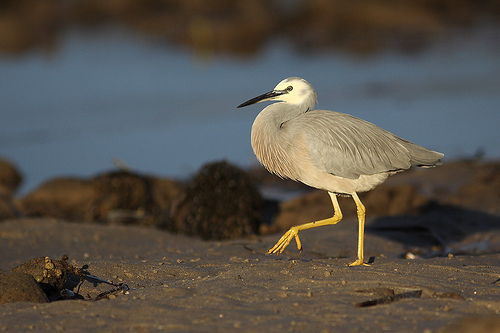A widespread outbreak of Japanese encephalitis (JE) occurred in piggeries in Australia in early-February and late-March 2022. These piggeries were in southern Queensland, New South Wales, Victoria and South Australia. In parallel with these outbreaks, multiple confirmed human cases of JE have unfortunately occurred.
The Australian Government has announced a $69 million commitment to control the spread of the virus. Federal and State governments will be responding in a coordinated way to minimise the impact of Japanese encephalitis virus on public health, animal health, industry, and the environment.
Our experts answer some common questions about Japanese encephalitis virus (JEV).
What is Japanese encephalitis virus?
Dr David Williams is a Japanese encephalitis expert.
“Japanese encephalitis (or JE) is a mosquito-borne disease that is caused by the JE virus (JEV). Infected mosquitoes spread the virus by feeding on susceptible animal hosts such as pigs or waterbirds. Uninfected mosquitoes then become infected when they bite these animals. Humans and other animals can be infected when they get bitten by infected mosquitoes,” David says.
“Most people who contract JEV will have no symptoms or experience a very mild illness and recover. In a small number of cases (less than one per cent) the virus can cause encephalitis. This is an inflammation of the brain, which unfortunately may lead to death or permanent disability.
"JEV does not spread directly from infected animals to people, or from person to person. It is also not a food safety concern. Commercially produced pork meat and pork products are safe to eat," he says.
Is it a new virus?
Unlike SARS-CoV-2, which causes the disease COVID-19, JEV is not a new virus.
It causes about 100,000 cases of JE in people worldwide each year. JEV is present throughout Asia and parts of the western Pacific, including Papua New Guinea. It is the most common cause of human viral encephalitis in Southeast Asia.
This is not the first time JEV has caused an outbreak in Australia. In 1995, an outbreak occurred in the Torres Strait Islands, causing three cases. Two of these cases were fatal.
More recently, in early-2021, there was a fatal human case in the Tiwi Islands (off the coast of the Northern Territory).
But this is the first detection of JEV in southern Queensland, New South Wales, Victoria and South Australia. In each affected state, there are now several human cases of encephalitis and dozens of infected piggeries.
How does it spread?
Dr Prasad Paradkar is a Vector-borne disease expert. He says JEV occurs in nature and is maintained in the environment in a transmission cycle between mosquitoes and animal hosts.
Migratory waterbirds and pigs are important animal hosts for JEV.
“Migratory waterbirds, such as herons and egrets act as ‘reservoir hosts’ for the virus. JEV can replicate in these birds, usually without causing disease,” Prasad says.
“It’s thought infected migratory waterbirds spread the virus over long distances by following river courses and waterways. When these birds arrive in a new location, they are fed on by local mosquitoes. These infected mosquitoes can then transmit the virus to humans and animals when they feed on us.
“Pigs are 'amplifying hosts'. This means they produce high amounts of virus in their blood, which is transmitted to biting mosquitoes.
“Humans and horses are known as 'dead-end hosts'. This means the virus doesn’t replicate to high enough levels in their blood to infect biting mosquitoes.
The main species thought to be involved is Culex annulirostris, known as the common banded mosquito,” he says.
How to stay safe

There are two ways to protect yourself from JEV.
Firstly, protect yourself from mosquito bites. Use a repellent like Aerogard, stay indoors at dawn and dusk, and wear long, loose-fitting clothing when outside. Keep mozzies out of your home by covering windows and doors with insect screens. Or sleep under mosquito nets.
Try to prevent mosquitoes from breeding around your home. Remember to empty any containers with water collecting in them – mosquitoes love to breed in water. Their life-cycle is about nine days. So it’s important to empty bird baths, chook water, and pot plant bases once per week.
Secondly, vaccination against JEV infection is safe and effective. During the current outbreak, State and Territory public health are coordinating and implementing a priority vaccination program. You can contact your local public health authority to find out if you should have a JEV vaccine.
How we are helping
Our scientists at the Australian Centre for Disease Preparedness (ACDP) are heavily involved in Australia's response. We're identifying affected states through diagnostic testing. In particular, those piggeries suspected of infection.
We're also providing information and advice to animal and public health laboratories on laboratory diagnostics. This includes testing guidelines.
In addition, we are sequencing the genome of the outbreak strain of the virus. This is important for accurate diagnostic testing.
Furthermore, we're providing expert scientific advice to government and animal health working groups involved in the outbreak response. These groups are working closely with public health counterparts in a One Health[Link will open in a new window] approach to coordinate and manage the outbreak.
We are helping in our region
Lastly, our scientists have been working in Papua New Guinea to establish surveillance for JEV using a One Health approach[Link will open in a new window].
